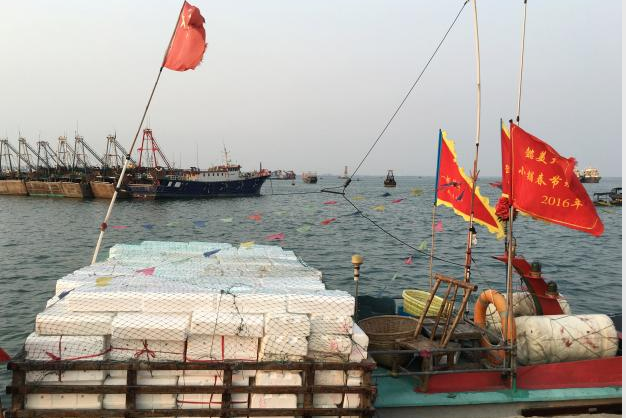
(Reuters) The fishing fleet based in this tiny port town on Hainan island is getting everything from military training and subsidies to even fuel and ice as China creates an increasingly sophisticated fishing militia to sail into the disputed South China Sea.
The training and support includes exercises at sea and requests to fishermen to gather information on foreign vessels, provincial government officials, regional diplomats and fishing company executives said in recent interviews.
“The maritime militia is expanding because of the country’s need for it, and because of the desire of the fishermen to engage in national service, protecting our country’s interests,” said an advisor to the Hainan government who did not want to be named.
But the fishing militia also raises the risk of conflict with foreign navies in the strategic waterway through which $5 trillion of trade passes each year, diplomats and naval experts say.
The United States has been conducting sea and air patrols near artificial islands China is building in the disputed Spratlys archipelago, including by two B-52 strategic bombers in November. Washington said in February it would increase the “freedom of navigation” sail-bys around the disputed sea.
The city-level branches of the People’s Armed Forces Department provide basic military training to fishermen, said the Hainan government advisor. The branches are overseen by both the military and local Communist Party authorities in charge of militia operations nationwide.
The training encompasses search and rescue operations, contending with disasters at sea, and “safeguarding Chinese sovereignty”, said the advisor who focuses on the South China Sea.
The training, which includes exercises at sea, takes place between May and August and the government pays fishermen for participating, he said.
Government subsidies encourage fishermen to use heavier vessels with steel – as opposed to wooden – hulls.
The government has also provided Global Positioning Satellite equipment for at least 50,000 vessels, enabling them to contact the Chinese Coast Guard in maritime emergencies, including encounters with foreign ships, industry executives said.
Several Hainan fishermen and diplomats told Reuters some vessels have small arms.
When “a particular mission in safeguarding sovereignty”, comes up government authorities will coordinate with the fishing militia, the advisor said, asking them to gather information on the activities of foreign vessels at sea.








